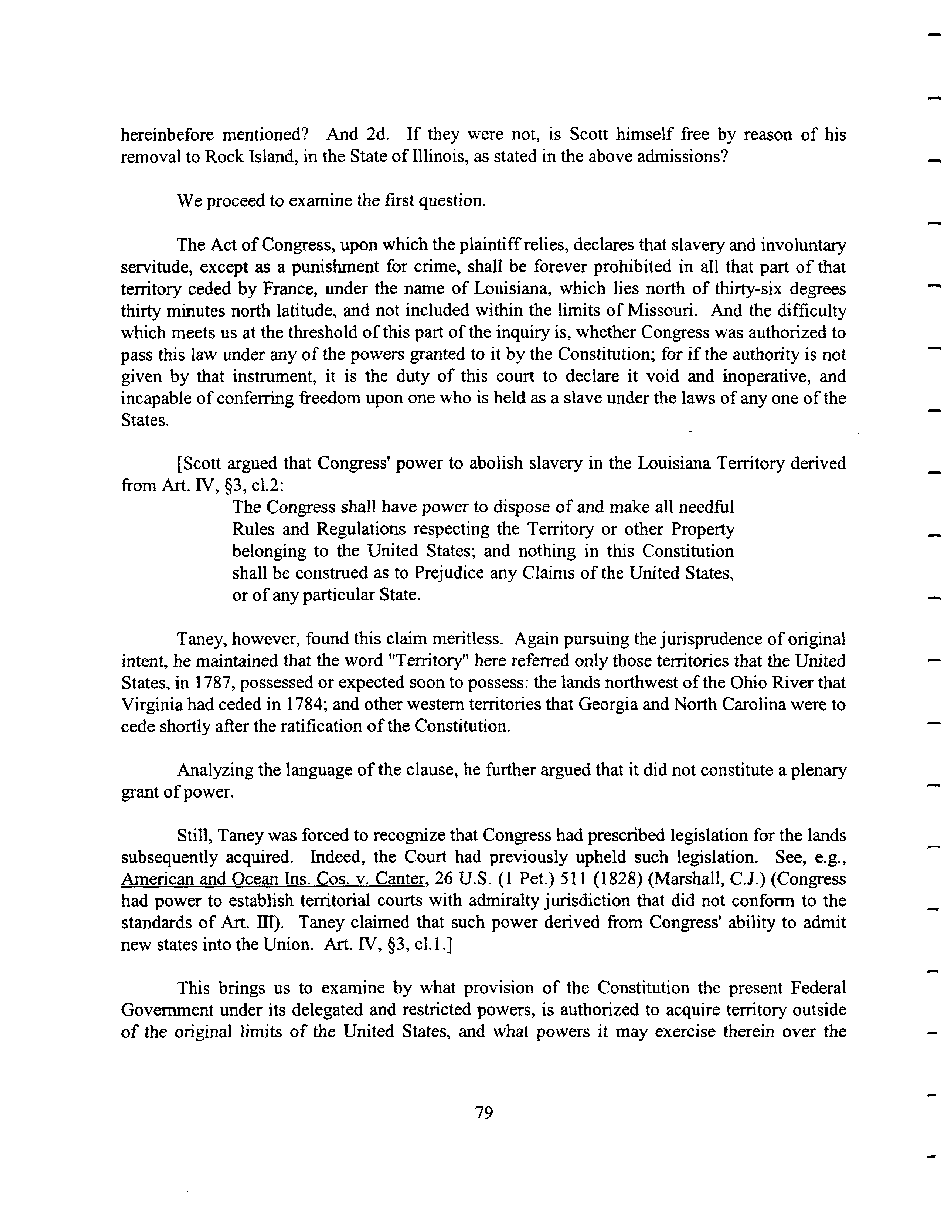|
hereinbefore mentioned? And 2d. If they were not, is Scott himself free by reason of his
removal to Rock Island, in the State of Illinois, as stated in the above admissions?
We proceed to examine the first question.
The Act of Congress, upon which the plaintiff relies, declares that slavery and involuntary
servitude, except as a punishment for crime, shall be forever prohibited in all that part of that
territory ceded by France, under the name of Louisiana, which lies north of thirty-six degrees
thirty minutes north latitude, and not included within the limits of Missouri. And the difficulty
which meets us at the threshold of this part of the inquiry is, whether Congress was authorized to
pass this law under any of the powers granted to it by the Constitution; for if the authority is not
given by that instrument, it is the duty of this court to declare it void and inoperative, and
incapable of conferring freedom upon one who is held as a slave under the laws of any one of the
States.
[Scott argued that Congress' power to abolish slavery in the Louisiana Territory derived
from Art. IV, §3, cl.2:
The Congress shall have power to dispose of and make all needful
Rules and Regulations respecting the Territory or other Property
belonging to the United States; and nothing in this Constitution
shall be construed as to Prejudice any Claims of the United States,
or of any particular State.
Taney, however, found this claim meritless. Again pursuing the jurisprudence of original
intent, he maintained that the word "Territory" here referred only those territories that the United
States, in 1787, possessed or expected soon to possess: the lands northwest of the Ohio River that
Virginia had ceded in 1784; and other western territories that Georgia and North Carolina were to
cede shortly after the ratification of the Constitution.
Analyzing the language of the clause, he further argued that it did not constitute a plenary
grant of power.
Still, Taney was forced to recognize that Congress had prescribed legislation for the lands
subsequently acquired. Indeed, the Court had previously upheld such legislation. See, e.g.,
American and Ocean Ins. Cos, v. Canter. 26 U.S. (1 Pet.) 511 (1828) (Marshall, C.J.) (Congress
had power to establish territorial courts with admiralty jurisdiction that did not conform to the
standards of Art. HI). Taney claimed that such power derived from Congress' ability to admit
new states into the Union. Art. IV, §3, cl.l.]
This brings us to examine by what provision of the Constitution the present Federal
Government under its delegated and restricted powers, is authorized to acquire territory outside
of the original limits of the United States, and what powers it may exercise therein over the
79
�
|

